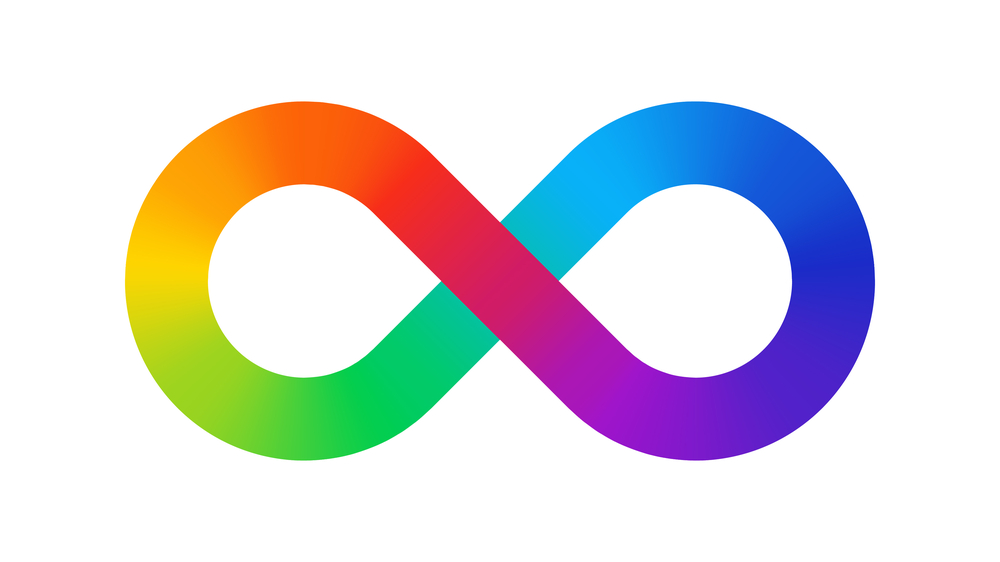NEW VIDEO: Why You MUST Quit Gaming in 2025
-
Posts
18 -
Joined
-
Last visited
ArcaneCoder's Achievements
Newbie (1/14)
20
Reputation
-
Week 2 I made it another week. It's now two weeks since I last gamed. 🥳 The beginning of last week, I didn't get much done. I thought about returning to video games a lot. I didn't get much sleep, finish much work, or do much. I watched seasons 5 and 6 of Futurama. I was binge watching, so I cut my self off by temporarily misplacing my tablet on Thursday. Later in the week, I started getting better sleep, and waking up earlier in the morning (7 - 8am). I also got more done, and read a bunch of random articles online. As courses are online, it's easy to underestimate how much material I fell behind on. I discussed my situation with my professors as struggling with my mental health. They mostly seemed receptive to that and are providing some leeway with deadlines. I have a tonne of catching up to do, so I am back to the grind of studying. Optimistically, when I finished this semester, I only have 11 courses and 39 credits remaining to my degree. Only 3 semesters of courses to finish my 130+ credit CS degree. It's something to work toward, so why would I want to duck up now? It's an effective incentive, and after next semester, I only have CS courses remaining! 😄
-
Week 1 So, I decided I would stop gaming on Monday, April 5, 2021. In fact, the night before, I recall removing steam and games. I was moved by something posted in the forum about quitting and benefits. I've not played or watched a game since, and it's been roughly 1 week. 🥳 The first week, I didn't do much. I distracted myself with software tech stack questions, employment opportunities, and skipping a second week of online synchronous classes (my gawd, I'm awful), while watching Ricky & Morty, then Solar Opposite, then half of Futurama. I also roamed the forum and wrote two python scripts summing expenditure and playtime on steam, further reinforcing my resolve to not game. I have thought about games every day. I was ambushed by ninja thoughts about games while doing or thinking of something else too. Such as suddenly thinking of Subnautica while watching the Atlanta Futurama episode, or being ambushed by Stellaris images while reading about Python frameworks. 🤔 Mostly, I'm feeling better and more optimistic at the beginning of this week than last week. I reached out to my professors to keep them in the loop, and I am attending classes again. I also returned to the Odin project and started reading through some of the material. I got a free copy of Cracking the Coding Interview through them, and started reading it this week. I also returned to LeetCode and started working through coding problems. I am dedicating about 1/3 - 1 hour each day solving LeetCode problems and reading Cracking the Coding Interview. I applied to two campus jobs. Waiting on responses. I also set a filtered job alert on Google Jobs and Glassdoor, so I get a daily report of new, relevant job postings to my inbox. My short term goal ( ~ 1 years ) is to finish my CS degree. My medium term goal ( ~ 2 years ) is to land any job in the tech industry. My long term goal ( > 2 years ) is to live independently.
-
Gamers accrue a kind of time debt by spending future gains for the present habit. Just like debt, these future gains compound into significant losses in potential earnings. Evaluating that loss by a factor of the federal minimum wage is a minimum estimate. Income gains accrue with education, experience and time (savings/property/stock). It may not be obvious, but gaming addiction is just as harmful as that of gambling, if not more so, especially if you start young. So yeah, that $82.5k low-ball loss in potential income stings, a lot. Had I spent the first half of that time, from 2013 to 2016, finishing a degree or professional training, my 2017-to-present earnings would likely be $160k+ for any degree/training ($40k/year), or $240k+ for STEM ($60k/year). It's not a complete loss though. I did game a lot, but not so much I made no progress in education. I am about one year from earning a CS degree. I just need to buckle down and finish it.
-
Sure. Script Code print("The total playtime of steam games.\n") total_playtime = 0 game_counter = 0 title_buffer = "" playtime_history = open("steam-playtime-history.txt") for next_line in playtime_history: if "hrs on record" in next_line: game_counter += 1 playtime = float(next_line.split(" ")[0]) print( str(game_counter) + ": " + str(title_buffer[:-1]) + " " + str(playtime) + "hrs\n" ) total_playtime += playtime print( "Running total: " + str(round(total_playtime,1)) + "\n" ) title_buffer = next_line print( "A total of " + str(round(total_playtime,1)) + " hours across " + str(game_counter) + " games on steam." ) print( "\nExamples\n" ) print( "\t* Equivalent to " + str(round(total_playtime / 2000.00, 2) ) + " years of full-time work.\n" ) print( "\t* Equivalent to earning $" + str(round(total_playtime * 7.25, 2)) + " at a wage of $7.25.\n" ) print( "\t* Equivalent to studying for " + str(round(total_playtime / 4800.00, 2)) + " bachelors degrees.\n" ) Like OP, but file is named steam-playtime-history.txt and copy the data from: View profile -> Games. Unfortunately, unless Valve stores playtime activity with timestamps, it's not probable the playtime can be broken down to the month or year. But, knowing when a game was bought, it's possible to relate the playtime to date of purchase. Example Output And to think, this excludes time I wasted on mmos and non-steam games. My first steam purchase was in late 2012. Maybe next, I can combine logic from both scripts and generate a graph relating playtime to date of purchase to "reconstruct the history of my descent after I downloaded steam."
-
To add, if you or people close to you have observed that you have a gaming problem, and if you have experienced serious consequences from gaming, then you have likely experienced addiction. If shopping addiction exists, then why not gaming addiction? Addiction rewires our brains to seek an experience repeatedly, because limited exposure and moderation are not enough. If you never wish to experience the consequences of your gaming problem again, then you never want to game again. The hardest step is breaking the cycle and confronting the consequences. The easiest step is saying no to every temptation and rationalization, then finding replacement activities: read novels exercise which benefits the mind[2][3] creative outlets in any medium of art, literature and music outdoors like running, hiking, camping, triathlon training, etc supportive interest groups with like-minded individuals, like https://www.cgaa.info/local-support-groups/ or https://www.meetup.com/ A mind hack is to not overthink it: don't ask why, just ask, "what likely happens if ...?" Authoritative Source/s https://www.health.harvard.edu/…/how-addiction-hijacks-the-brain https://www.who.int/news-room/fact-sheets/detail/physical-activity https://www.nia.nih.gov/health/real-life-benefits-exercise-and-physical-activity
-

One of the Most Important Works of Our Time:
ArcaneCoder replied to ceponatia's topic in General Discussion
I remember following Jordan Peterson back in 2016. He became a YouTube sensation during the US 2016 race, which is no coincidence. His work is popular among the white nationalist (Trump) crowd in the US. Still, I'm willing to give Verveake a chance, albeit I'm skeptical. I'm not keen on the video medium, so I'll try reading this medium article on Vervaeke's meaning crisis. -
I have written and tested a small python script that reads a text file of data copied directly from Steam transaction history to calculate the total spent on Steam games. Spoiler, it's a lot more than I thought it was! Program Code print("The total cost of steam purchases.") transactions = 0 transaction_counter = 0 transaction_history = open("steam-transaction-history.txt") for next_line in transaction_history: if (next_line[:3] in ("Jan", "Feb", "Mar", "Apr", "May", "Jun", "Jul", "Aug", "Sep", "Oct", "Nov", "Dec") and ("\n" in next_line[:14])): print("\nFound valid date: " + str(next_line[:12])) title = transaction_history.readline() while not ("Purchase\n" in title): print(title[:-1]) title = transaction_history.readline() next_line = title if "Purchase\n" in next_line: if transaction_history.readline().split(" ")[0] in ("Visa", "PayPal\n", "American", "MasterCard", "Discover", "JCB"): purchase = transaction_history.readline() transaction_counter += 1 print(str(transaction_counter) + ": " + str(purchase[:6])) transactions += float(purchase[1:6]) print("\nYour total expenditure on Steam is: $" + str(round(transactions, 2))) Instructions Download attached .py script Copy code above to a file with a .py extension in a directory (desktop is fine) ie steam-total-cost.py Log in to Steam (you can do this in browser at steam login webpage if you don't have steam installed) Kudos to you for uninstalling Steam if so. Click {username} in top left -> Account Details -> View Purchase History Scroll down and click Load More ctrl + a -> ctrl + c Create a txt file in the same directory as the python program, naming it steam-transaction-history.txt Open the text file -> ctrl + v -> ctrl + s don't worry about any excess text like Valve info at header and footer of file don't reformat Open your system terminal -> navigate to the chosen directory (ie desktop) If you don't know how to use your system terminal, then search how to change directory, list files in current directory, etc for your OS/terminal. type python3 steam-total-cost.py and press enter you may need to install python; google python cli installation for {your OS} and follow instructions Share the total below. Behold in humiliation how much you and others have spent. 😦 Truncated Output I had no idea I was averaging $17 / month on the steam store for almost a decade, and that doesn't include purchases on other platforms! 🤯 My code is far from perfect and my Python is very rusty. I'm much more familiar with Java. Let me know if you get strange output, unlike what I've shared above.
-
3% happens to be the official gambling addiction incidence. Also, many minors are playing games, and according to research, in twenty years, the average playtime has doubled among minors. Of 75 million US children, a 2003 study documents 36% as gamers. Of that number, at least 0.75 million US minors are video game addicts. The APA officially only acknowledges online gaming addiction, so the indidence rate is likely underreported in the US. Gaming adoption among youth is also much higher than twenty years ago, so the real number of addicts is likely ~1.5 (+- 0.5) million US minors. The gaming industry knows their games are addicting. They even consult leading psychologists on addictive designs and methodologies. Minors are contending with a market almost as dangerous as the gambling industry, but without regulation. The US needs regulation to prevent the worse forms of child exploitation. Many alcoholics typically deny their addiction until their family confronts them and coerces strongly encourages them to seek professional help. Then supports them through the recovery process. The APA and gaming industry, by shifting blame, are effectively denying millions of addicts the treatment they need. I told a clinical psychologist of my addiction three years ago. The "expert" in the room asked the lazy question, "do you play mmos." I said, "I have in the past and I don't anymore due to the time demands, but I still have this problem with my Steam account." She told me point blank I'm not suffering addiction despite my 120+ two weekly gameplay average, then refused to help me. The morale of the story: video game victims will not officially receive the help they need until the APA breaks lockstep with the gaming industry and reaffirms the WHO's official stance; video gaming addiction, not exclusively online gaming addiction. We should make controversy by petitions on change.org and boycotting game publishers. Sorry this post sidetracks the thread, however, I infer from other posts contrary viewpoints. It's important not to victimshame addicts, many of whom became addicted by an unregulated gaming industry that targets them as minors, according to industry insiders. Source: https://www.ncbi.nlm.nih.gov/pmc/articles/PMC5761323/ (primary source) https://theconversation.com/the-business-of-addiction-how-the-video-gaming-industry-is-evolving-to-be-like-the-casino-industry-83361 (must read)
-
Day 5 I watched season 3 of Rick and Morty on the AdultSwim livestream and read multiple chapters of A Clash of Kings. I didn't feel motivated to do much else. I had a bunch of disconcerting dreams last night. In one dream, I was video gaming again, and I thought I relapsed. When I awoke, I realized it was just a dream.
-
Day 4 I got my haircut by a hair stylist, ate takeout and reviewed Python on DataCamp.com. DataCamp has a free week, which I have decided to take advantage of. Overall, my day was better than the one before.
-
Day 3 I read some articles and watched Blackkklansman and X-men. I didn't feel all that great, so I had a slow day.
-
Day 2 I cleaned some of the cabinets in the kitchen and watched the last season of Game of Thrones. I also worked through some intermediate algorithm challenges and jQuery problems on freecodecamp.org.
-
The two main characters have similar personalities to Rick and Morty, but the premise of the show differs. If advanced aliens are stranded on Earth and have to deal with human stuff, then we're humans in an alien ant farm. 🤔
-
Day 1 I watched Solar Opposites on Hulu. If you like Rick and Morty, then this series is for you. I also looked at some job descriptions for developer openings in my area and revisited freecodecamp.org. I plan to work on their curriculum during May and finish the Front End Libraries and JavaScript sections. I almost finished the JavaScript section during winter break, so I suspect this monthly goal will be very manageable. I watched Cam Adair's video on 5 Reasons Gaming Makes You Lazy, which inspired me to research some information others may find interesting. I will not read articles and watch movies via electronics in the evening, so I develop a regular sleep pattern and habits. I plan instead to read novels before bed. https://www.ncbi.nlm.nih.gov/pmc/articles/PMC5449130/ - Study finds risk factors of sleep disruption, and associates light levels to sleep regulation and daily habits. "The circadian rhythms work to synchronize sleep with the external day–night cycle, via the suprachiasmatic nucleus (SCN) that receives direct input from nerve cells in the retina acting as brightness detectors. [...] The SCN also works with a series of clock genes [...] giving rise to daily patterns of activity."
-
Thank you. I haven't thought much about back-end development, but I will look into it.





